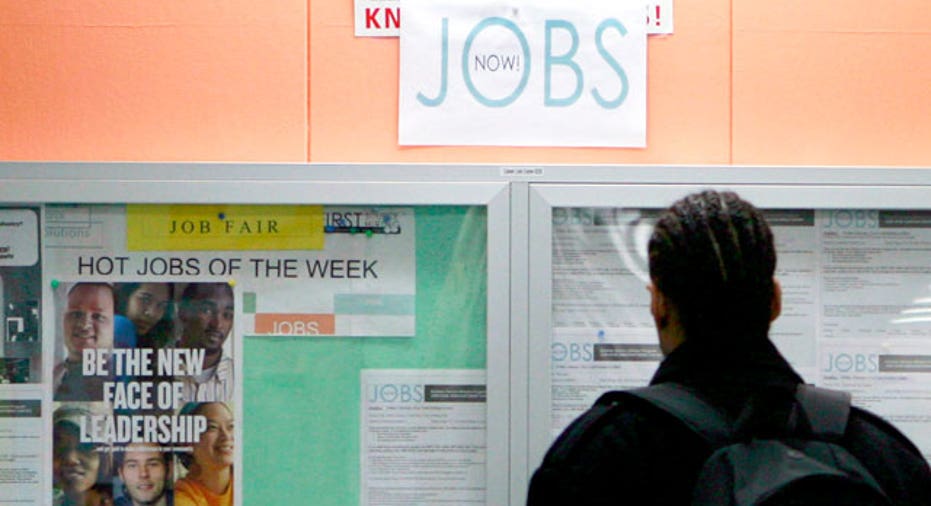How to Survive the 'Zombie Economy'

What does the threat of a zombie attack and a financial meltdown have in common? For starters, you have to act fast, remain calm and fight back. That’s the premise of the off-beat new book, “Zombie Economics: How To Slay Your Bills, Decapitate Debt, and Fight the Apocalypse of Financial Doom,” a tongue-in-cheek guide to financial survival for the type of people who like a good chuckle when they’re slogging through a crisis.
As the title suggests, Zombie Economics takes a “survival-at-all-costs” mantra to fresh heights, introducing each chapter with a breathless scene straight out of a horror flick, except the bad guy isn’t going to eat your brains — the real enemy is bankruptcy, financial predators and debt.To put it plainly, the zombie economy is any situation that’s “attacking you,” explains 39-year-old Lisa Desjardins, who Zombie Economics REUTERS/Handoutco-authored the book with Rick Emerson. “It could be everything from the global economic meltdown to a personal crisis, and it makes you vulnerable, it makes you feel defenseless and you don’t know how to combat it.”Desjardins, a correspondent for CNN, talked to Reuters about her own brush with the zombie economy, and how to avoid your own personal financial apocalypse.
You warn right up front that this books isn’t your typical personal finance guide — it’s not about getting rich or winning in the stock market. Tell me what you were aiming for.
This is a book for people who would never buy a Barron’s guide — a dusty, intimidating personal finance book. Those are great, but we wanted a book for people who like cable television: they aren’t going to be putting together an Excel spreadsheet to figure things out, but they have serious financial problems that they don’t know how to deal with.
Why the zombie theme?
Rick and I really enjoy the zombie genre, and they were the perfect metaphor. Rick honed in on this idea of a brainless thing that keeps attacking you — and it almost describes the way macroeconomics apply to an individual person. They don’t feel like there’s a lot they can do to protect themselves against this huge thing, and we’re telling them how they can fight it.What are the biggest mistakes people make in a financial crisis?
One of the biggest mistakes is not taking action quickly enough. People really need to evaluate the situation and then move on it. Sitting back and feeling stressed won’t do anything. All-out panic is another mistake. And what we’re trying to say in this book is, “Take a breath, you can figure it out. Crying isn’t going to help.”
This is the first personal finance book I’ve seen that has health and fitness advice in it. Why did you include it?
We felt really strongly about that, and it was something that some publishers were surprised about. We felt that healthcare could be a double-hit if you don’t take care of it or a double-bonus if you do. If you’re unwell, you’re going to be losing a lot of money, not only for nominal bills but for lack of productivity at work. And with that comes a second hit, which is how it affects your mindset, how you operate in the world, how you take control in your life. When you don’t take care of your health, you’re opening the door to making yourself vulnerable. And to deal with your finances, you have to have your head in the game.
What’s your personal experience with a zombie economy?
I was fired from my very first reporting job at a local TV station in Myrtle Beach, South Carolina [in the late-90s]. I had to drive a TV truck and I was fired for too many speeding tickets. I was in the worst shape … I just thought my life was over.
What are some tips for someone who finds himself in a zombie economy?
Number one is sit down and make an action plan. The whole point of this book is to go step by step. One of the first things we have people do is look, in a very sober way, at exactly how much money they have coming in — write it down, we have the worksheets in the book. And then look at the bills you expect to have. Write down what your financial situation is right now.Then we have people look at what is essential in their lives — what they absolutely must pay for. And then everything else you have to put on the table for either cutting out or cutting back on, at least during this crisis.
You really have to have the discipline. In the book, we use the drill sergeant voice that says “Get it together!” but we also try to give people incentive. We don’t want people eating beans every day to save money. The point of the book is to enjoy your life. We want to put people into a position where they’re not scared.
This book is written for everyone from the 50-year-old man who loved the original zombie movies to the 20-year-old who likes to daydream he’s a superhero — or for anyone who likes a good plotline. We really tried to think of everyone.



















